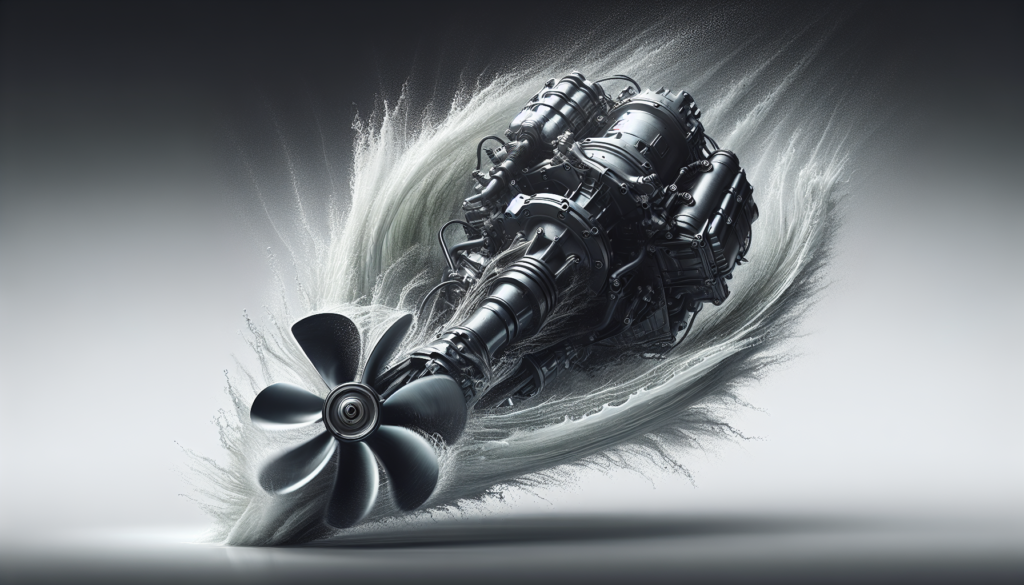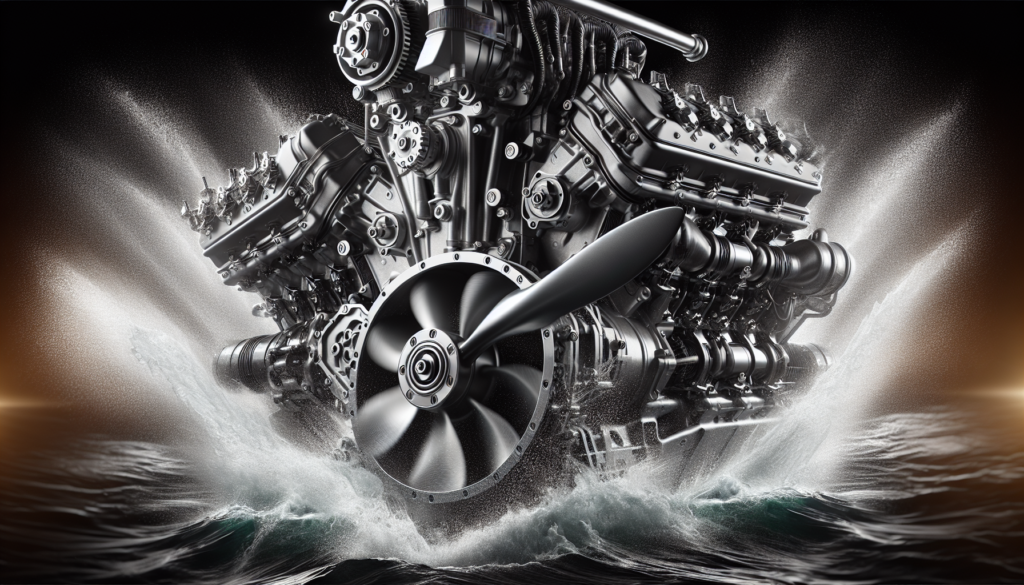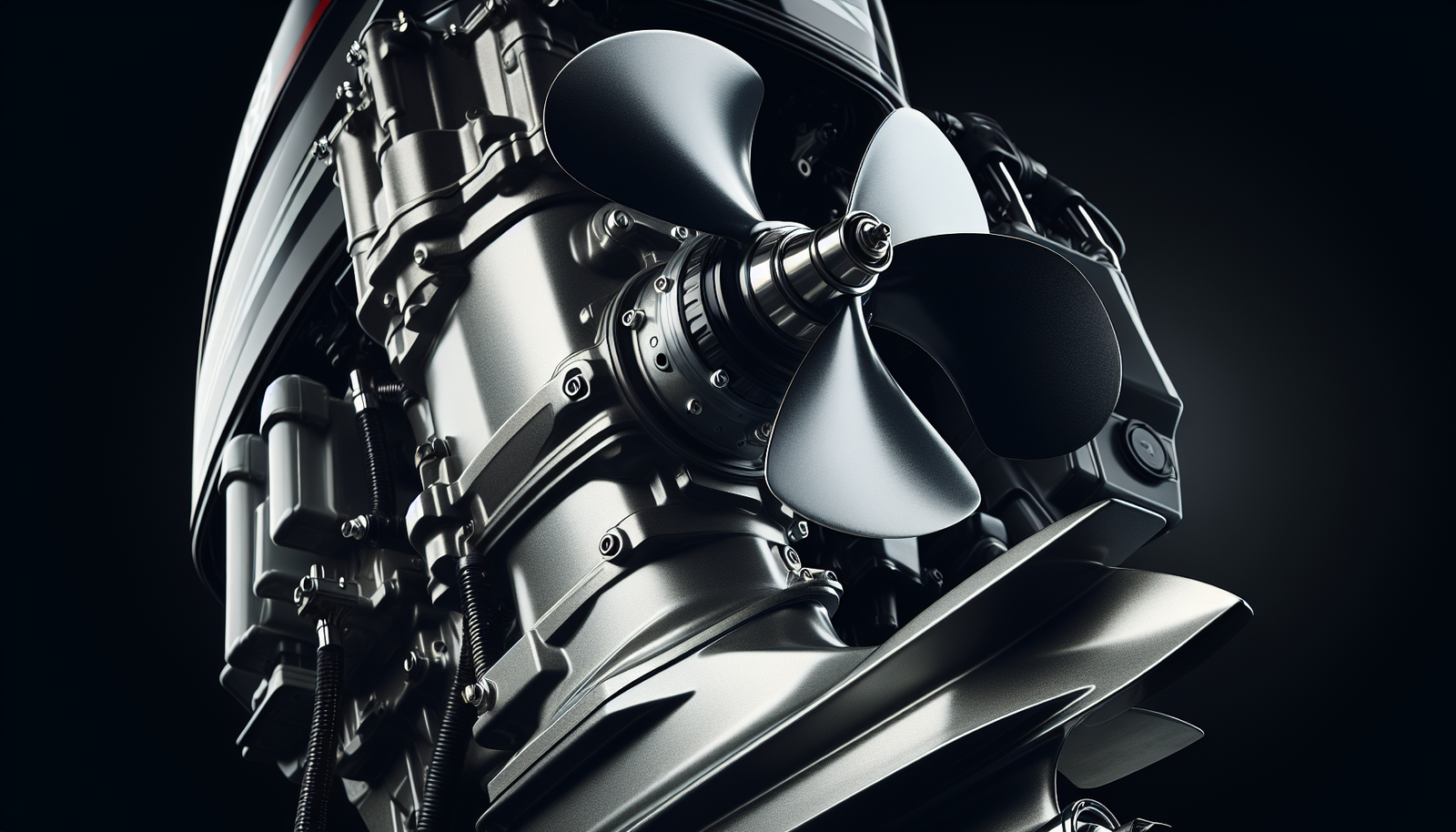You’ve ever wondered why some boats roar through the waters while others gently cruise? This isn’t just decorative flair, it’s largely the result of horsepower. It’s a term you’ve likely heard, especially if you’re a boat enthusiast. Yet what it actually means and its impact on boat engine performance might still seem somewhat elusive. In “The Impact Of Horsepower On Boat Engine Performance,” we unpack this concept, exploring the role of horsepower and how it can significantly influence your boating experience. From speed to fuel efficiency, horsepower determines more than you might realize. Are you ready to power up your knowledge? Let’s go for a thrilling ride!
Understanding Boat Engine Horsepower
Whoever said “knowledge is power” clearly thought about boat engine horsepower. This article will guide you through an in-depth exploration of boat engine horsepower, how it affects your boat’s performance, and how to use that knowledge to greatly enhance your time on the water.
Definition of Horsepower
Horsepower is a unit of power that measures the amount of work that can be done over a specific period of time. It was coined in the 18th century by the Scottish inventor James Watt as a comparison to the power provided by one horse. In terms of your boat, horsepower refers to the power output of your boat’s engine. It’s the force pushing you across the water on power-packed adventure, or the calm cruise you’ve been waiting for all week.
The correlation between Horsepower and Performance
Like a car, the horsepower of your boat engine directly influences its performance. The more horsepower an engine provides, the more speed, acceleration, and agility you can expect. There’s a real thrill in more horsepower – being able to cut through the waves at considerable speed, with the wind in your hair is a pleasure like no other.
Understanding Horsepower Ratings
Usually, you’ll find the horsepower rating on the engine or in the boat’s manual. The rating is determined through engine testing by the manufacturer. However, it’s important to remember that not all horsepower ratings are created equal- the weight of your boat, altitude, and even the temperature can affect the actual power you get from your engine.
Types of Boat Engines
Much like their horsepower, the type of engine your boat has can greatly influence its performance. Let’s take a look at the three main types of boat engines along with their typical horsepower ranges.
Inboard Engines
Inboard engines are built into the hull of the boat, providing a low center of gravity and great balance. They typically range from 50 to over 1000HP, making them ideal for larger boats that require more power.
Outboard Engines
Outboard engines are attached to the stern of the boat and can easily be removed for repairs or replacements. They range from 1 to 600HP, with smaller boats usually accommodating these engines for easy maneuverability.
Sterndrive Engines
A sterndrive engine, also known as an inboard/outboard engine, is a hybrid of the two. They are located inside the boat like an inboard engine but have a drive unit located outside the boat like an outboard engine. They typically offer horsepower ranging from 200 to 430HP.

Effects of Horsepower on Speed Performance
Do you love the feeling of speed when you’re out on the water? Then, understanding how horsepower affects your boat’s speed performance is crucial.
How Horsepower influences Boat Speed
Simply put, the higher the horsepower, the faster your boat can go. More horsepower transfers into more force propelling your boat forward, hence, faster speeds.
Relationship Between Horsepower and Acceleration
Acceleration is another performance aspect directly influenced by horsepower. A higher horsepower engine can help your boat reach its top speed in a shorter amount of time.
Maximizing Speed with Suitable Horsepower
Maximizing your boat’s speed isn’t just about going for the highest possible horsepower rating. Too much horsepower can make a boat unstable and dangerous. It’s all about finding that sweet spot – where the horsepower matches your boat’s design and weight for optimized performance.
Impact of Horsepower on Fuel Efficiency
Being aware of fuel consumption is important – both for cost reasons and to extend your voyage time.
Understanding Fuel Efficiency
Fuel efficiency is the distance a boat can travel per unit of fuel. In other words, a boat with better fuel efficiency will use less fuel to cover the same distance as a boat with poor fuel efficiency.
Role of Horsepower in Fuel Consumption
Typically, higher horsepower engines consume more fuel. However, if the boat is too heavy for the engine, it can struggle and overwork, leading to higher fuel consumption.
Striking a Balance between Horsepower and Efficiency
The key here is balance. You want enough horsepower to efficiently power your boat without wasting an unnecessary amount of fuel. Consulting with a boating professional can help in finding the balance unique to your boat’s specifications and needs.

Role of Horsepower in Towing and Hauling
If you’re interested in water sports, fishing or cruising with loads, understanding horsepower’s role in towing and hauling is pivotal.
Importance of Adequate Horsepower for Towing
Underpowered boats strain themselves when towing, leading to engine damage. Adequate horsepower is crucial for easy and safe towing.
The Relationship between Horsepower and Boat Load Capacity
As load on your boat increases, so does the horsepower needed to carry it. Always be aware of your boat’s load capacity and make sure your engine has the horsepower to match.
Selecting an Engine with suitable Horsepower for Hauling
If you tend to haul significant loads, it’s worth considering a higher horsepower engine. A marine dealer can provide a recommended range based on your specific boating style, usage, or load requirements.
Influence of Horsepower on Watercraft Maneuvering
Handling and maneuverability, such as making turns, controlling rough waters, or docking, are influenced by your boat’s horsepower too.
How Horsepower Affects Boat Handling
Both too much or too little horsepower can affect your boat’s maneuverability. Appropriate horsepower allows quicker responses when steering or adjusting speed.
Making Sharp Turns: Role of Horsepower
With higher horsepower, your boat can respond faster and make sharper, more agile turns.
The Connection between Horsepower and Stability on Water
An adequately powered boat offers a smoother ride and better stability on water. It can provide the needed push against waves and tide, giving you better handling and control.

Variable Factors that Affect Horsepower
When determining the right horsepower for your boat, there are other factors to consider besides engine type.
Engine Design Considerations
The overall design of your engine, including its size, number of cylinders, and how it’s tuned, can influence the horsepower it produces.
Boat Weight and Its Effect on Horsepower
The heavier the boat, the more horsepower it requires to maintain ideal performance levels. The boat’s weight should always be considered when choosing your horsepower.
The Impact of Boat Hull Design on Horsepower Requirements
The shape and design of your boat hull affect its resistance against the water. The more resistance, the more horsepower you’ll require.
Horsepower versus Torque in Boat Engines
Understanding the tussle between horsepower and torque helps you leverage them for your boat’s performance.
Understanding the Concept of Torque
Think of torque as the force that gets your boat moving from a stop, while horsepower is what keeps it moving. Both are essential for optimal performance.
Interdependence of Torque and Horsepower
The relationship between these two is summed up in this simple principle: without enough torque, you can’t make use of all the horsepower your engine has to offer. However, with insufficient horsepower, you won’t maintain your boat’s speed.
How Torque Complements Horsepower in Boat Engines
While you might need more horsepower for activities like speed riding or towing, torque plays an important role in providing a smoother start and maintaining steadiness at lower speeds.
Consequences of Over or Under Powering Your Boat Engine
While both more power and fuel efficiency are attractive, it’s critical to strike the right balance.
Risks of Insufficient Horsepower
Under powering your boat can lead to engine strain, decreased fuel efficiency, poor handling and maneuverability, and a less enjoyable boating experience.
Potential Damage from Excessive Horsepower
On the flip side, overpowering can cause instability, make the boat harder to control, increase your fuel consumption, and even potentially damage the boat or engine in some circumstances.
Finding the Right Balance of Power for Your Boat
The right balance is different for everyone and depends on factors such as boat size, weight, design, and the activities you plan to do. Evaluate these aspects carefully when picking your boat’s horsepower.
Choosing the Right Boat Engine Horsepower
There are plenty of factors to consider when choosing the right boat engine horsepower, and the decision can greatly impact your boating experience.
Factors to Consider when Choosing Engine Horsepower
Apart from your intended use for the boat, factors to consider include people capacity, boat size and weight, desired speed, fuel efficiency, and cost.
Types of Boats and their Horsepower Requirements
Different types of boats have different horsepower requirements. For example, a sailboat requires less horsepower than a ski boat or a large yacht.
Professional Help in Selecting the Right Horsepower
An experienced marine dealer or boat mechanic can provide an accurate horsepower recommendation based on your specific needs and the type of boat you have. Professional guidance can be invaluable in making this decision.
At the end of the day, understanding boat engine horsepower can greatly enhance your entire boating experience. It’s all about making informed decisions that culminate in smooth, enjoyable sailing. Time to set your sails and harness the power of your boat’s engine!

